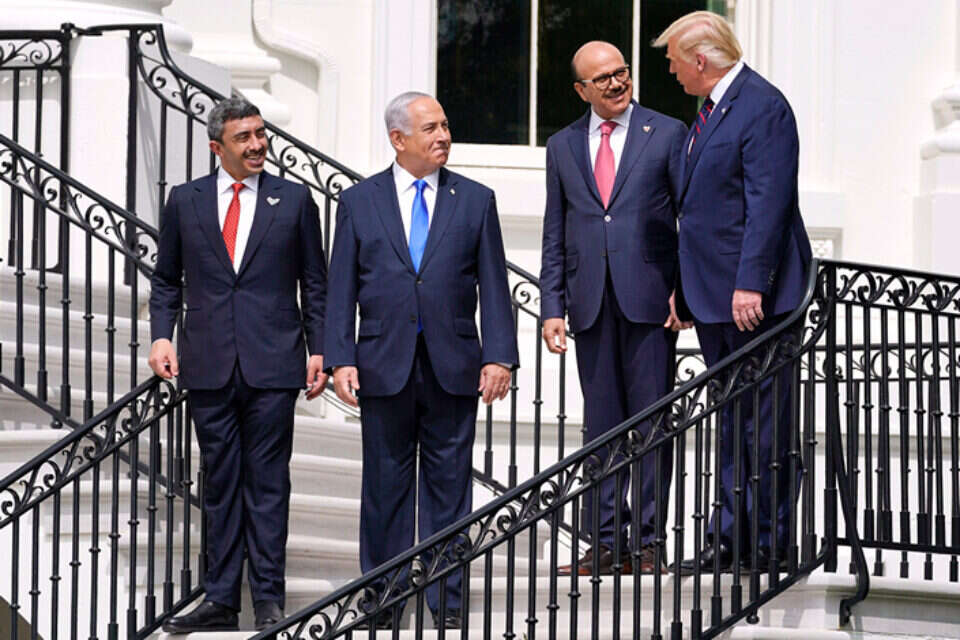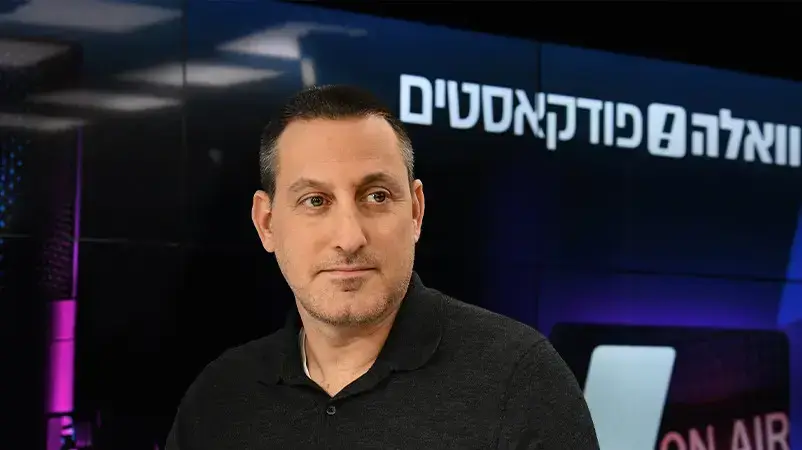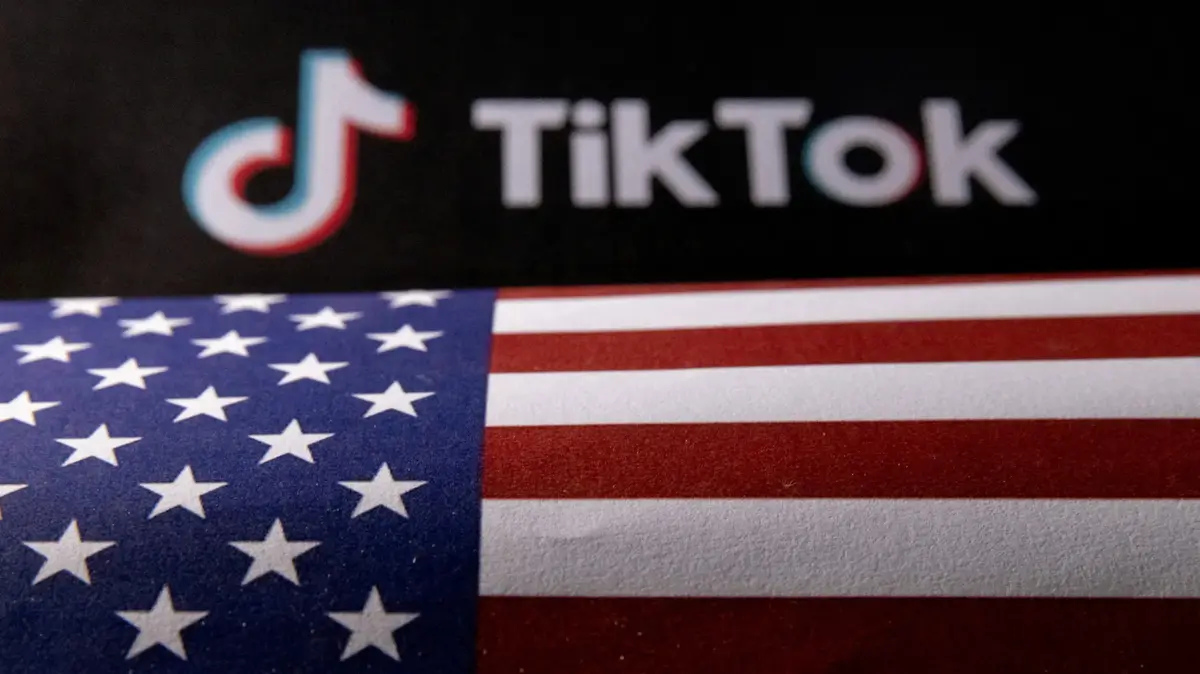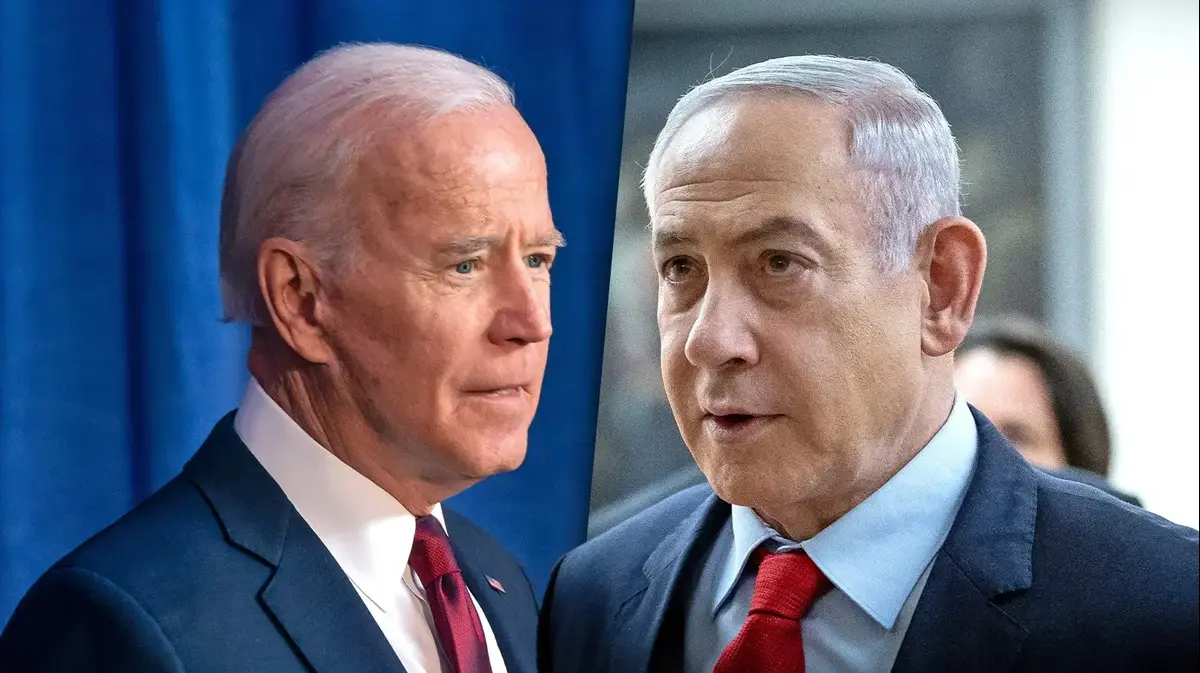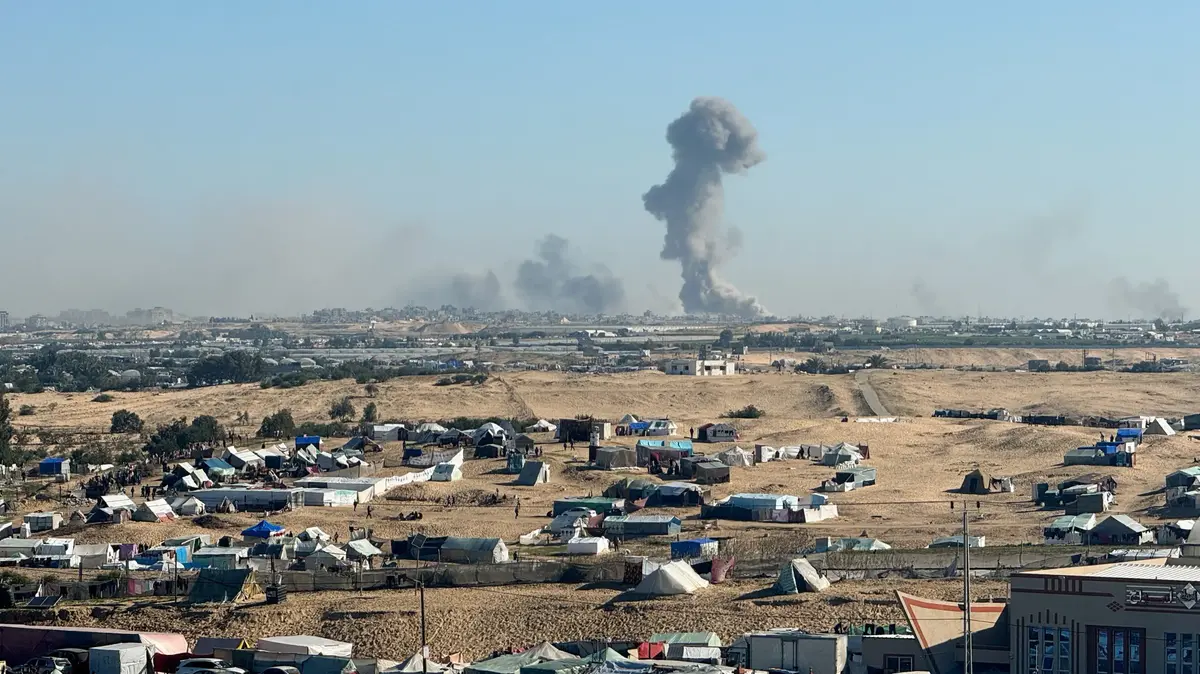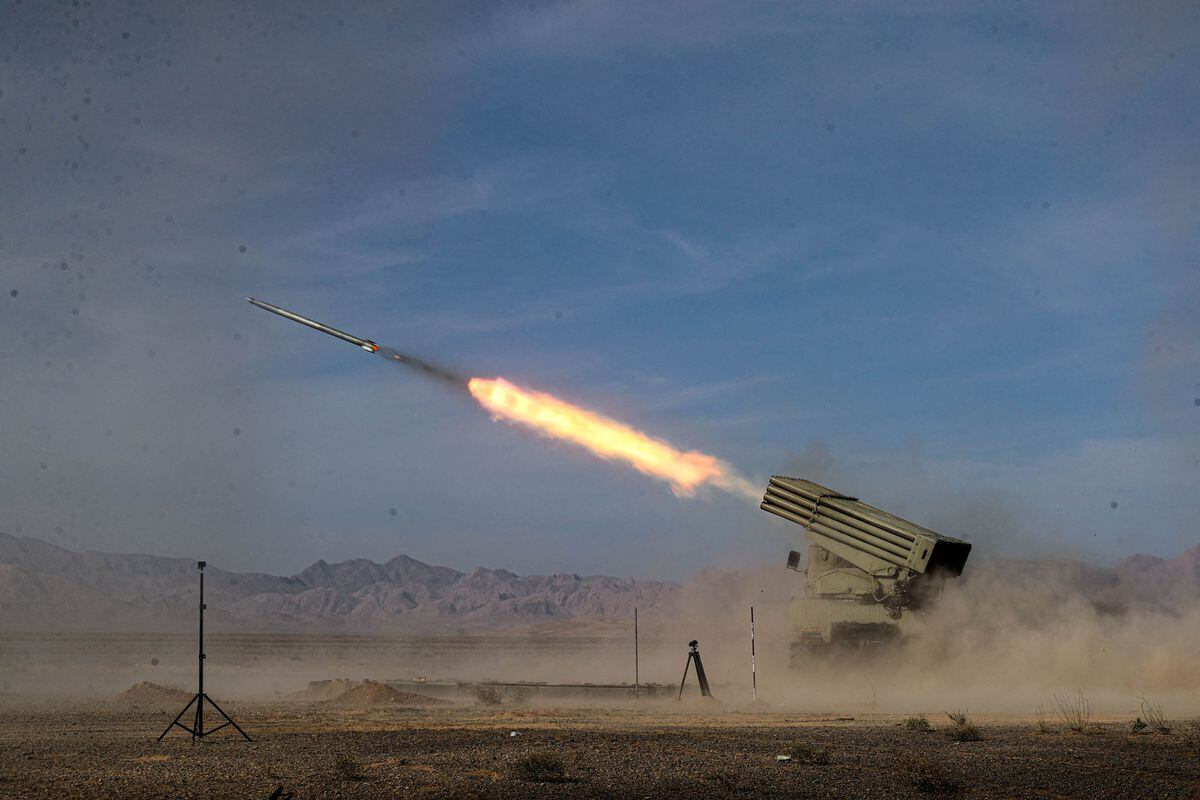On February 15, 2017, the White House hosted the first meeting between then-Israeli Prime Minister Benjamin Netanyahu and then-US President Donald Trump. They had known each other for many years, but now they were both heads of state.
Two years earlier, in the midst of the Obama era, Netanyahu and his advisers had concluded that the region was ripe for peace relations between Israel and the Gulf states.
Contrary to the thesis that has dominated the political discourse in both Israel and the West for decades, they believed that such a development was possible even before a comprehensive agreement between Israel and the Palestinians.
Following the "Arab Spring" shocks, the rise of ISIS, the US withdrawal from the Middle East, the reduction of global dependence on oil, the strengthening of Iran from here and the strengthening of Israel from here and Netanyahu's speech in Congress against the nuclear deal - clear messages came to Jerusalem
But the Americans
expanded,
but the Americans rejected Netanyahu's thesis.
Trump and his advisers, though very sympathetic to Israel, also questioned. In that first meeting with Trump, Netanyahu mentioned the secret meeting on a ship in the Suez Canal, between President Roosevelt and Ibn Saud, the founder of Saudi Arabia. At that meeting, the alliance between Saudi Arabia and the United States was actually created (although Ibn Saud rejected Roosevelt's request to allow 10,000 Jews to enter Israel). In this spirit, Netanyahu told his host, The Saudi Regiment, and to Muhammad bin Zayed the regent and de facto ruler of the UAE) to a ship in the Red Sea, and seated us along with you. It is possible. You will make history. "
Trump and his entourage doubted.
They had no political experience, and what they knew was the prevailing opinion that there is no order without the Palestinians.
There were also good souls, like the president's friend Ronald Lauder, who visited the White House several times and dripped in his ears that an agreement with the Palestinians was achievable, and that Netanyahu was simply evading.
Trump, as publicly stated, was keen to achieve what he defined as the "deal of the century," on which his peacekeeping team, led by Jared Kushner and Jason Greenblatt, began work.
During the two years of formulating the plan they met many in the area.
In these conversations, as the man of confidence dropped and the masks came down, it became clear to them where the Gulf states were really heading.
Cool the enthusiasm.
Kushner with Ambassador Friedman // Photo: US Embassy Jerusalem - David Azagury,
A senior Israeli official involved in the talks says that "it took them two whole years to be convinced that the Arab rhetoric on the Palestinian issue is mostly a lip service."
The stubborn Palestinian refusal to talk to the Trump administration has contributed to American disillusionment.
"Unlike the Obama people, who were locked in their approach, Kushner and his associates were open-minded. They agreed to listen and then also to check the direction we suggested," the senior Israeli official said.
Threshold of mutual consent
But Trump was determined to advance a move against the Palestinians, and to make it easier for the Gulf states to publish their ties with Israel, it was also clear to our side that something needed to be done on the Palestinian front - even if an agreement was not achievable.
Ron Drummer, the ambassador to Washington and the person closest to Netanyahu on these issues, presented the Israeli perception in this context several times in the years 2019-2018. At a conference of the American Jewish Committee in June 2019, Drummer said that "there is a moment of opportunity. I am more optimistic about reconciliation between Israel and the Arabs than I have ever been." After analyzing the regional situation, he added that in the Palestinian context, because of the pressure on the street, "a creative plan is needed, that we will not be rejected and Arab countries will not reject. This is a step that must be crossed, and "The past has been rejected by them or by us, or by both sides."
Drummer, by the way, was first seen at a joint and official event with Emirates Ambassador Yussef al-Utaibe at an event of the Jewish Institute of National Security (JINSA) in late 2018. It was a public sign, one of many, of the process of rapprochement between the two countries.
The messages that came from Arab countries led Netanyahu and his advisers to conclude that in order to facilitate them, any peace plan with the Palestinians would have to include three necessary components: the words "Palestinian state," even if the term state is emptied of content; Some Israeli concession in Jerusalem in a permanent settlement - this is how the idea was born to transfer to the Palestinians the two and a half Arab neighborhoods within the city, but behind the separation fence and under strict conditions; And the third component - the preservation of the status quo on the Temple Mount.
On the Israeli side, there was complete confidence that the Palestinians would reject the plan and that its main advantage would be the next stage: normalization with Arab states.
The early explorations of the Americans on the Arab side also showed that a breakthrough was possible.
The Israelis did not know which country would be the first to get on the wagon.
"There was an assumption that the Emirates was in the most mature situation, but there was no secret agreement with Mabaz (Muhammad bin Zaid), or with another leader," says the former Israeli official.
The Americans saw things differently.
The Palestinians were in their eyes the goal, not just the means.
A former White House official, who played a crucial role in the process, told Israel Today that "our intention in publishing the peace plan in January 2020 was to reach an agreement with the Palestinians and we concentrated on that. No one thought or knew that things would develop as they did.
"We wanted peace between people."
Advertising campaign filmed in Dubai // Photo: EP,
"Sovereignty was not brought in either to get a return later. Although at that time we were already working on normalization between Israel and the Arab countries, but there was no connection between the two, and the Emirates was not the first candidate either. If you asked me in January 2020 who would be first, I would be Says Morocco. "
The US administration was prepared and intended from the outset to present the "Plan of the Century" in early 2019. According to the original schedule, as seen in Israel, Arab states would give the Palestinians a few months to digest the plan.
If the Palestinians happen to come and start negotiations - what good.
If not, the Gulf states will say something along the lines of, "We have waited long enough for the Palestinians, a reasonable American proposal awaits them on the table. We are moving forward with normalization with Israel."
Between the election mines
And one more thing.
After the presentation of the plan and the normalization, a third move was planned - sovereignty.
The understanding between Israelis and Americans was that after the plan was presented - and after the hopeful breakthrough in front of the Gulf states, as Israel believed would happen - the administration would authorize Israel to apply Israeli law to parts of Judea and Samaria, according to the Trump map.
"Such a move at the right time would in no way lead to the collapse of the agreements with the Gulf states," says a senior Israeli official who was in talks. "The heart of the matter. We understood this from the talks with them. Especially since 2015, we knew that it was possible, and that contrary to what others thought and said - there is no dependence between a breakthrough with the Persian Gulf states and an agreement with the Palestinians."
Israel's run into the first election campaign, in early 2019, severely disrupted the schedule.
The administration did not want to be portrayed as interfering in the internal political process and therefore decided to postpone the launch of the "Century Plan".
But then came the second election campaign, and the administration again decided to wait.
However, to begin the process, Kushner convened the "Economic Workshop" in Bahrain in the summer of 2019. Israelis, Arabs and international representatives there publicly discussed the huge program he initiated for the development of the Palestinian economy.
Abu Mazen and his men boycotted the event.
This regional meeting was also a milestone in the process to come.
At the end of 2019, when it became clear that Israel was running for a third election and the US presidential election was getting closer, Trump's people realized that this was a moment of now or never. They decided to present the plan they were working on, but it meant For a few months.
The more dramatic change was the introduction of the sovereignty move to normalize relations with Arab countries. The Israelis and Americans agreed that immediately after the presentation of the peace plan, Israel would apply the law on 30 percent of Judea and Samaria, designated for it under the Trump plan. On the other hand, Israel would not apply sovereignty over additional territories For four years, to enable negotiations.This dramatic event was not intended to prevent the United Arab Emirates or other countries from reconciling with Israel.
"Their interest in peace with Israel does not change because of a move like sovereignty," the source said in detail. "It is true that the political schedule in both Israel and the United States has changed the original plan. But as long as there is a political program in the background for the Palestinians, which receives support from the United States and other elements in the international community and Arab countries do not report it, and when Prime Minister Netanyahu speaks publicly about his desire for peace with the Palestinians and his willingness to give them a real peace agreement It".
Thus, on January 28, 2020, the White House held a ceremony to unveil the peace plan.
Three Arab ambassadors, from Oman, from Bahrain, as well as Yosef al-Utayba from the United Arab Emirates, honored the event in their presence.
Two hours after the ceremony, a representative of the Netanyahu entourage called a senior official in one of the Gulf states and explained to him what Israel was planning to do.
"We intend to pass the decision on sovereignty. The sooner we do it, the less pressure you will have. Then you will do your part," he said.
The representative from the Gulf replied, "That makes sense."
The quiet understanding between the two was that a certain period of time after the application of sovereignty, and of course before the US elections, his country and perhaps other countries, would announce their desire for reconciliation with Israel.
The emissary Avi Berkovich,
"Sunday" that did not come
The implementation of the sovereignty move has been complicated for a variety of reasons.
We now find that the misunderstanding between the government in Jerusalem and the administration in Washington also contributed to a blizzard in Switzerland.
Jared Kushner, who was with Trump at the Davos Economic Conference a week before the launch of the Century Plan, was scheduled to fly from there to Israel to close details with Netanyahu.
The weather prevented him from doing so.
The cancellation of this meeting, the non-convening of a last coordination meeting in the White House on the eve of the ceremony and other reasons, caused serious differences of understanding between Netanyahu and Kushner.
The Prime Minister has received from other American representatives an explicit promise that he will be able to apply sovereignty immediately.
Kushner, on the other hand, argued that this was a slower process, and even presented this position to the American media.
While Netanyahu briefs the Israeli media on "sovereignty on Sunday," Kushner declared, "sovereignty after the election."
The differences in attitudes were exposed to the eyes of all and caused Netanyahu enormous embarrassment. He acted according to the summaries. Short in the media within the administration presented him again as one who makes false promises.
The rage in his entourage was great. One of the prime minister's advisers had a difficult conversation with a senior member of Trump's staff and demanded that he accept responsibility, go to the president and make it clear that the problem occurred on the American side, so the White House must rectify the situation and allow Israel to exercise sovereignty as agreed. The senior US official, however, refrained from doing so. Despite the severe damage, criticism of the Israeli side was well hidden from the media, which closely followed the events.
Netanyahu returned to Israel, while on his way to Moscow he gathered the young Israeli Naama Issachar. In the coming months, Americans and Israelis will try to reach renewed understandings on how to exercise sovereignty. In the coalition agreement with Bnei Gantz, it was agreed that as of July 1, Netanyahu will be able to bring to the cabinet the outline that he will decide on with the administration. This was the only issue that was excluded from the requirement for the consent of both to the agenda of that unity government. Proposals went up and down, including the application of sovereignty in two stages, a partial and symbolic application in Ma'ale Adumim or only in settlement, and more.
Three weeks before the deadline, on June 12, 2020, the Emirate Ambassador to al-'Utaiba surprised by publishing an unusual article in Yedioth Ahronoth. He threatened that the application of sovereignty would stop the process of rapprochement between his country and Israel, but the threat did not achieve its goal. Despite his remarks, the Americans decided to move forward with the issue of sovereignty and at the end of June the special envoy, Avi Berkovich, left for Israel. In the meetings that took place, Berkowitz heard from Magnes and Ashkenazi that they opposed sovereignty. Netanyahu, on the other hand, demanded that the administration keep its promise.
"Meetings with Netanyahu did not progress. He wanted sovereignty and was not prepared for counter-gestures to the Palestinians, which Berkowitz asked him in return," the senior US official said.
At the end of each session, Berkowitz updated Kushner on developments.
In one of the update talks, the idea arose for the first time that Israel would relinquish sovereignty in exchange for peace with the Emirates.
Kushner authorized Berkowitz to examine the idea with Netanyahu, when in fact, Netanyahu also raised it during the discussions.
"It happened even though at the time, at the end of June, it was completely speculative. There has never been such an offer from the Emirates," the former US official clarified.
Former Ambassador Drummer // Photo: EPI,
Suspension instead of cancellation
Berkowitz returned to the United States. Just as he landed, as he was making his way from the plane to the White House, he received a phone call from al-Utayba with a concrete proposal that the emirates would normalize ties with Israel if it relinquished sovereignty ("Normalization for Annexation"). in that conversation what includes normalization and what should Israel give up on sovereignty. but the phone spawned marathon sessions throughout the month of July and beginning of August at the white house, where Lovano details.
talks were led by Berkowitz American side, Dermer Israeli side and Al-aotiibh from the Emirates, While in Israel there were only two secret partners: Netanyahu, and the head of the National Security Council, Meir Ben Shabbat.
The emirates demanded the permanent abolition of sovereignty, but both the Americans and the Israelis rejected their position. After deliberation, the word "suspension" was determined. Against the waiver, the emirates initially wanted to settle for a partial normalization.Here, too, the Americans and Israelis presented a united front and demanded a full public reconciliation.
The issue that was not discussed with the Israelis in those days crowded in the White House was the emirate expectation of receiving advanced weapon systems from the United States, including the F-35 aircraft. Israelis were aware of the issue. "For years the emirates have sought such systems.
We knew that once there was normalization they would re-upload it and try to get the old lists.
That is precisely why we did not agree to talk about it before signing the peace agreements, "says the Israeli official.
To sharpen the message, Netanyahu sent a letter to Secretary of State Pompeo in parallel with the peace talks at the White House.
It explicitly states that Israel stands by its opposition to the sale of any weapon that has enhanced the American commitment to preserve its qualitative advantage over its neighbors - a statement that means opposition to the sale of the aircraft.
Even the Israelis refused to discuss ways to preserve that quality advantage until the official ceremony at the White House was completed.
Towards mid-August, peace talks were ripe.
Aryeh Lightstone, aide to Ambassador David Friedman, said the name "Abraham Agreements" was born just an hour before the historic phone call between Trump, Netanyahu and Muhammad bin Zayd on August 13, 2020. Everything else is history.
"We wanted it to be a peace that would go down in the field, a peace between people and peoples, that would lead to doing business together and entrepreneurship - not just between ministers or leaders," the U.S. official recalled.
In this spirit, Berkowitz insisted that the agreement include direct flights between the two countries.
"It has proven itself. More than 200,000 Israelis have flown to the Emirates this year. Despite the corona, there are collaborations and agreements between countries and individuals in a wide range of areas. This is something we will be proud of for the rest of our lives."

